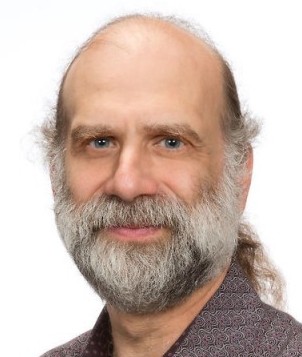Policy Repercussions of the Paris Terrorist Attacks
In 2013, in the early days of the Snowden leaks, Harvard Law School professor and former Assistant Attorney General Jack Goldsmith reflected on the increase in NSA surveillance post 9/11. He wrote:
Published by The Lawfare Institute
in Cooperation With

In 2013, in the early days of the Snowden leaks, Harvard Law School professor and former Assistant Attorney General Jack Goldsmith reflected on the increase in NSA surveillance post 9/11. He wrote:
Two important lessons of the last dozen years are (1) the government will increase its powers to meet the national security threat fully (because the People demand it), and (2) the enhanced powers will be accompanied by novel systems of review and transparency that seem to those in the Executive branch to be intrusive and antagonistic to the traditional national security mission, but that in the end are key legitimating factors for the expanded authorities.
Goldsmith is right, and I think about this quote as I read news articles about surveillance policies with headlines like "Political winds shifting on surveillance after Paris attacks?"
The politics of surveillance are the politics of fear. As long as the people are afraid of terrorism -- regardless of how realistic their fears are -- they will demand that the government keep them safe. And if the government can convince them that it needs this or that power in order to keep the people safe, the people will willingly grant them those powers. That's Goldsmith's first point.
Today, in the wake of the horrific and devastating Paris terror attacks, we're at a pivotal moment. People are scared, and already Western governments are lining up to authorize more invasive surveillance powers. The US wants to back-door encryption products in some vain hope that the bad guys are 1) naive enough to use those products for their own communications instead of more secure ones, and 2) too stupid to use the back doors against the rest of us. The UK is trying to rush the passage of legislation that legalizes a whole bunch of surveillance activities that GCHQ has already been doing to its own citizens. France just gave its police a bunch of new powers. It doesn't matter that mass surveillance isn't an effective anti-terrorist tool: a scared populace wants to be reassured.
And politicians want to reassure. It's smart politics to exaggerate the threat. It's smart politics to do something, even if that something isn't effective at mitigating the threat. The surveillance apparatus has the ear of the politicians, and the primary tool in its box is more surveillance. There's minimal political will to push back on those ideas, especially when people are scared. Writing about our country's reaction to the Paris attacks, Tom Engelhardt wrote:
...the officials of that security state have bet the farm on the preeminence of the terrorist 'threat,' which has, not so surprisingly, left them eerily reliant on the Islamic State and other such organizations for the perpetuation of their way of life, their career opportunities, their growing powers, and their relative freedom to infringe on basic rights, as well as for that comfortably all-embracing blanket of secrecy that envelops their activities.
Goldsmith's second point is more subtle: when these power increases are made in public, they're legitimized through bureaucracy. Together, the scared populace and their scared elected officials serve to make the expanded national security and law enforcement powers normal.
Terrorism is singularly designed to push our fear buttons in ways completely out of proportion to the actual threat. And as long as people are scared of terrorism, they'll give their governments all sorts of new powers of surveillance, arrest, detention, and so on, regardless of whether those powers combat the actual threat. This means that those who want those powers need a steady stream of terrorist attacks to enact their agenda. It's not that these people are actively rooting for the terrorists, but they know a good opportunity when they see it.
We know that the PATRIOT Act was largely written before the 9/11 terrorist attacks, and that the political climate was right for its introduction and passage. More recently:
Although "the legislative environment is very hostile today," the intelligence community's top lawyer, Robert S. Litt, said to colleagues in an August e-mail, which was obtained by the Post, "it could turn in the event of a terrorist attack or criminal event where strong encryption can be shown to have hindered law enforcement."
The Paris attacks could very well be that event.
I am very worried that the Obama administration has already secretly told the NSA to increase its surveillance inside the United States. And I am worried that there will be new legislation legitimizing that surveillance and granting other invasive powers to law enforcement. As Goldsmith says, these powers will be accompanied by novel systems of review and transparency. But I have no faith that those systems will be effective in limiting abuse any more than they have been over the last couple of decades.




.jpg?sfvrsn=d5e57b75_7)
